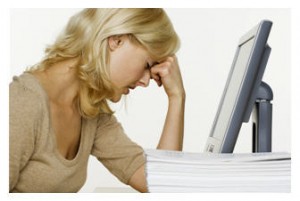The information in this column was too helpful to pass up discussion. Although targeted at Boomers, “Advice About Sleep Deficiency at Midlife” is chock full of tidbits useful for all of us.
 The article explains how alcohol, caffeine, and lifestyle habits chip away at quality sleep – and what that means for our health.
The article explains how alcohol, caffeine, and lifestyle habits chip away at quality sleep – and what that means for our health.
Part of a series of columns by researcher Dr. Orfeu Marcello Buxton, a neuroscientist who studies sleep deficiency both at home and in the workplace, these articles on The New York Times may prove eye-opening.
I thought I knew a fair amount about the effects of poor or insufficient sleep given my history of related challenges, but I picked up useful new information from this series.
Alcohol Before Bed?
Among the questions asked in this column were those concerning a drink before bed and a cup of coffee – or more – to get the juices going for the day.
You’re probably aware already that alcohol may make us feel as though we sleep more easily at night, but an excess of alcohol also causes interrupted sleep, and we won’t even speak of the dehydration and headache in the morning if we’ve really overindulged.
Thinking that a cocktail or glass of wine in the early evening is typically fine, I was nonetheless surprised to read that even moderate alcohol consumption in the evening is a bad idea, as
sleep is less restorative, lighter and more broken.
Reversing the Effects of Sleep Deprivation
When it comes to reversing the effects of chronic sleep insufficiency, “we don’t know” seems to be the prevailing response to how well the body bounces back, including when we suffer sleep loss for a relatively short time versus extended periods of years, even decades.
Dr. Buxton’s column reminds me how tired most of us are, with our working lives colliding into once-upon-a-time “personal” lives, as we burn the candle at both ends, as we stare at screens late at night (adding to sleep disturbance), as we find ourselves tired when we wake, tired in our kitchens, tired at work, tired behind the wheel, too tired for sex, too tired to talk with our partners and our children, tired, tired, tired…
When will we wake up to the fact that we’re shortening our lives, compromising the quality of our lives, and possibly putting ourselves (and others) at more immediate risk?
 May I add that Dr. Buxton suggests that high school students may be the most sleep-deprived segment of the population in the US?
May I add that Dr. Buxton suggests that high school students may be the most sleep-deprived segment of the population in the US?
While they may be consuming energy drinks more than coffee, what does this say about the model of unhealthy behaviors and achievement expectations we’re setting for our kids?
Insufficient Sleep, Poor Quality Sleep
Not only do we realize that sleep deprivation contributes to weight gain, but as Dr. Buxton points out:
… chronic sleep deficiency has the potential to impact nearly all of our physiologic systems… sleepiness increases, and mood, concentration, memory and attention are poor with a narrowing of focus. Our appetite increases and food preferences become less healthy…
We’re also aware that judgment is impacted and inattention leaves us more prone to accidents of all sorts.
While I know that stress impacts hormones significantly, I was nonetheless surprised by these nuggets:
… all hormones in the body become imbalanced. Spontaneous pain increases.
I hadn’t thought about issues of sleeplessness and low libido. Nor had I made the connection between recent narrowing amounts of sleep in my own life, and higher levels of back and arm pain from an old injury. A light bulb moment!
Morning Coffee, Caffeine Conundrum
While I’ve cut back on coffee from days (and nights) when a few pots weren’t unusual, reports that caffeine can be good for us stimulated my devotion to the magical dark drink. Still, I try to keep to three or four cups a day maximum, and I’ve noticed that I don’t actually need a morning cup of coffee the way I once did.
I like it, mind you. But often, I begin writing immediately after waking, and get around to the coffee a half hour or more later.
In light of my own morning habits, I found this intriguing:
Sleep inertia, the persistence of a sleep-like state upon waking, is the time needed for the frontal parts of our brain to come online, and takes about 15-45 minutes.
 Perhaps that explains why writing in my journal first thing in the morning, or writing online first thing in the morning, is a healthier mechanism for getting my mental juices flowing than I realized.
Perhaps that explains why writing in my journal first thing in the morning, or writing online first thing in the morning, is a healthier mechanism for getting my mental juices flowing than I realized.
Work Life: Sleep Deprivation Costs Big Bucks
I am reminded by this column – and this topic – that we must manage our work lives to the fullest extent possible, and not the other way around. While I’m the poster child for breaking that rule, I’m constantly trying to “right the balance.”
On that note, I’ve just scrawled a reminder to myself in red Sharpie, and taped it to my kitchen cabinet. The sign reads BALANCE. In smaller print, I’ve written “sleep, eat, walk, work.”
No kidding.
Dr. Buxton writes:
In the United States, being at work but not fully functional because of insomnia (called “presenteeism”) has been estimated to cost $63 billion annually… Management can either be a part of the problem, or be a part of long-term solutions.
Sleep Better, Work Smarter?
I seriously doubt that the figure quoted by Dr. Buxton addresses the millions of freelancers and other home-workers, who are also cutting back on sleep at levels that seriously impair daily functioning, not to mention long-term health.
Work is necessary and, if we’re lucky, fulfilling. The need for healthy food, regular exercise, and a reasonable sleep regimen must be part of our front-of-mind awareness. Yet we live in a culture that pushes us beyond our limits, then pushes us some more. It doesn’t help that we laud the all-nighter and wear our fatigue on our sleeves like a badge of honor.
How do we make small, daily changes so we can regain control – and sleep – stepping off the hamster wheel that is costing us so dearly?
Begin Dr. Buxton’s series here.
You May Also Enjoy
Had no idea about sleep inertia…good stuff here. Sleep deprivation is a constant midlife issue. Thanks for the helpful info!
The sleep inertia surprised me, too, Carol. Check out Dr. Buxton’s full series. Fascinating.
I often have trouble sleeping, and have been tired a lot lately. I find exercise helps me sleep better. But, as a parent, I don’t think I can get by without morning coffee!!!
Sleep inertia – That explains so much! I either sit down to write fiction asap in the morning (after a quick trip to the loo & an encounter w/my toothbrush) or I busy myself with tasks that allow me to wake up (put the coffee on, wash dishes, start laundry, tidy up). Dr. Eric Maisel talks extensively about using the sleep inertia (though not that term) to access all the things we were dreaming about before we woke up. I find it really productive to write fiction before my brain is thinking about my massive daily to-do list. Still shuddering over the hormonal imbalance info & the weight gain. I struggle with insomnia part of the month. Thanks for the great post!
Wolf,
Until your post today, I was not familiar with the concept of sleep inertia. I never suspected a scientific connection to Julia Cameron’s “morning pages.” Fascinating stuff, Wolf.
I didn’t know about it either, Rudri. Really interesting, isn’t it?
For someone who likes to “wake up slow” (Jack Johnson) I am intrigued with the idea of putting off the first cup for a little bit. Those are the moments we find rich writing and idea generation – and sleep inertia? Wow. Very interesting.
I’m so happy my 2 or so years of poor to little sleep when I was going through menopause have passed. I thought I was losing my mind. Maybe I have now – and just don’t realize it. But I’m sleeping well – and I’m glad of that.
I envy you your ability to sleep, Barbara! And that post-waking, pre-“everything” time can be pretty wonderful if we can allow ourselves that. (Cool to find out the reason why, isn’t it?)
I am going to re-read and re-read this!
Very timely… as are many of your words… 🙂
xv